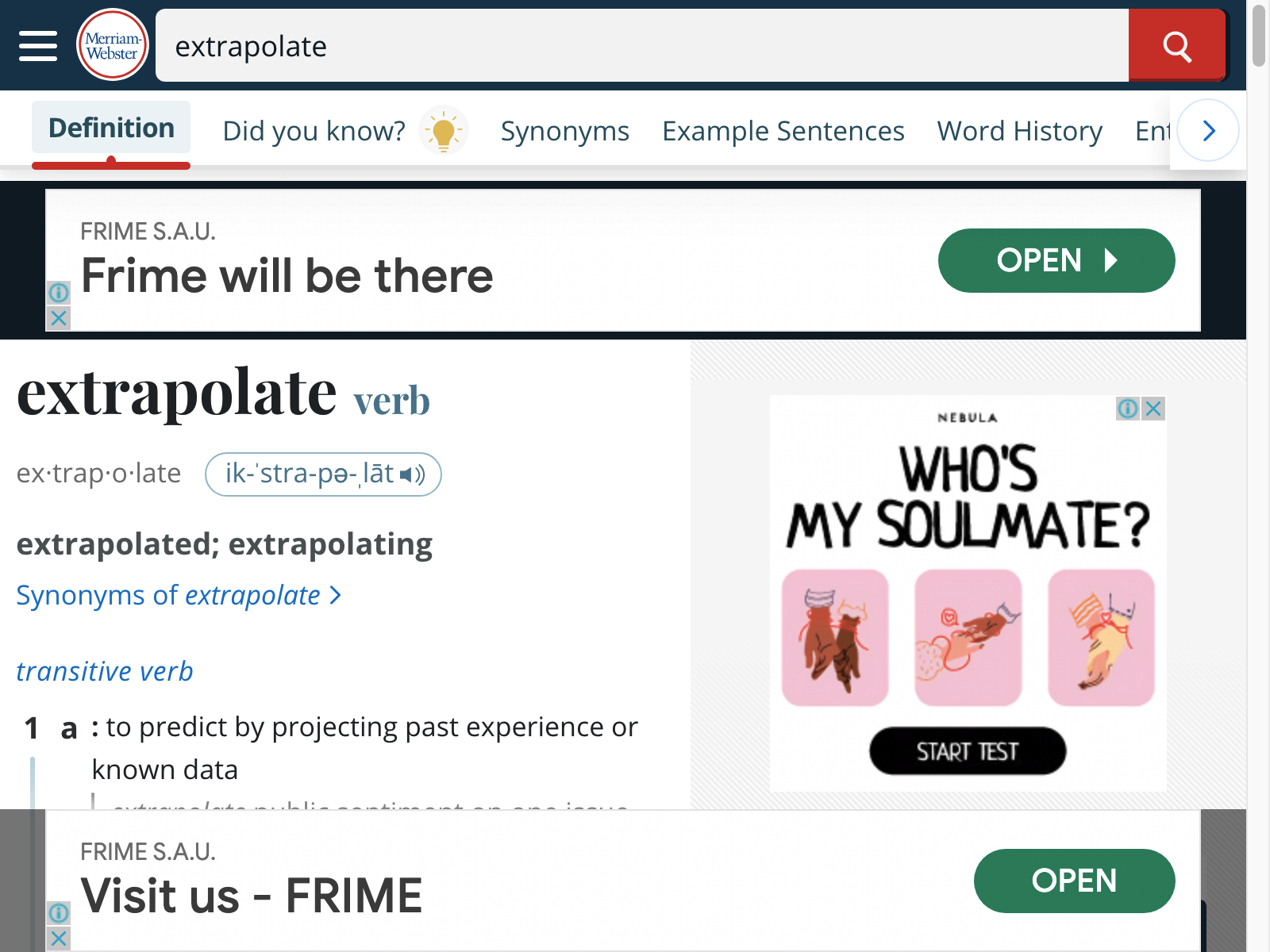Extrapolate: AI-Powered Prediction and Projection

Extrapolate Overview
Extrapolate is an AI-powered tool that helps users make informed predictions and projections based on past data and experience. This powerful tool utilizes advanced machine learning algorithms to analyze patterns and trends, allowing users to anticipate future outcomes with greater accuracy.
In a detailed review, Extrapolate offers a comprehensive suite of features that make it a valuable asset for businesses, researchers, and decision-makers. Its intuitive interface and user-friendly design make it accessible to users of all technical backgrounds, ensuring a seamless and efficient experience.
Extrapolate Key Features
-
Data Analysis: Extrapolate's advanced data analysis capabilities allow users to uncover hidden insights and trends within their data, enabling them to make more informed decisions.
-
Predictive Modeling: Utilizing machine learning algorithms, Extrapolate can create accurate predictive models that forecast future outcomes based on historical data.
-
Scenario Planning: The tool empowers users to explore different scenarios and their potential impacts, facilitating informed decision-making and strategic planning.
-
Visualization: Extrapolate provides a range of visualization tools, including charts, graphs, and dashboards, to help users interpret and communicate their findings more effectively.
-
Collaboration: The tool supports seamless collaboration, allowing multiple users to work on the same projects and share insights in real-time.
Extrapolate Use Cases
Extrapolate's versatility extends across various industries and applications. Some common use cases include:
- Financial Forecasting: Predicting future financial performance, such as revenue, expenses, and cash flow, based on historical data.
- Sales Projections: Anticipating future sales trends and patterns to optimize inventory management and marketing strategies.
- Demand Modeling: Forecasting customer demand to better align production, distribution, and resource allocation.
- Risk Assessment: Identifying and mitigating potential risks by analyzing historical data and simulating various scenarios.
Extrapolate Pros and Cons
Pros:
- Accurate predictive capabilities based on advanced machine learning algorithms
- Intuitive interface and user-friendly design
- Comprehensive data analysis and visualization tools
- Collaborative features for seamless teamwork
- Applicable across a wide range of industries and use cases
Cons:
- Steeper learning curve for users unfamiliar with data analysis and predictive modeling
- Potential reliance on high-quality data for accurate predictions
- Ongoing subscription-based pricing model may not suit all budgets
Extrapolate Pricing
Extrapolate offers a flexible pricing structure to accommodate the needs of various users and organizations. Here's an overview of their pricing plans:
| Plan | Price (per month) | Features |
|---|---|---|
| Basic | $49 | - Data analysis and visualization |
| Pro | $99 | - Advanced predictive modeling |
| Enterprise | Custom | - Tailored solutions for large organizations |
Extrapolate Alternatives
While Extrapolate is a powerful AI-powered tool, there are several alternative solutions that users may consider:
- ForecastThis: A comprehensive forecasting and predictive analytics platform with a focus on time-series analysis.
- Predictly: An AI-driven predictive analytics tool that specializes in sales and demand forecasting.
- DataRobot: A robust machine learning platform that automates the process of building and deploying predictive models.
Extrapolate FAQ
-
What type of data can Extrapolate work with? Extrapolate can handle a wide range of data formats, including numerical, categorical, and time-series data. The tool is designed to seamlessly integrate with various data sources, such as databases, spreadsheets, and external APIs.
-
How accurate are Extrapolate's predictions? Extrapolate's predictive accuracy depends on the quality and relevance of the input data, as well as the complexity of the problem being solved. The tool's advanced machine learning algorithms are designed to provide highly accurate predictions, but users should always validate the results and consider their specific use case.
-
Can multiple users collaborate on Extrapolate projects? Yes, Extrapolate supports collaborative features that allow multiple users to work on the same projects simultaneously. This enables teams to share insights, review each other's work, and make collective decisions.
-
Is Extrapolate suitable for both small and large organizations? Extrapolate offers flexible pricing plans and scalable solutions to accommodate the needs of organizations of all sizes. While the Basic and Pro plans cater to smaller businesses and individual users, the Enterprise plan is tailored for large enterprises with more complex requirements.
For more information or to try Extrapolate, visit the official website (opens in a new tab).